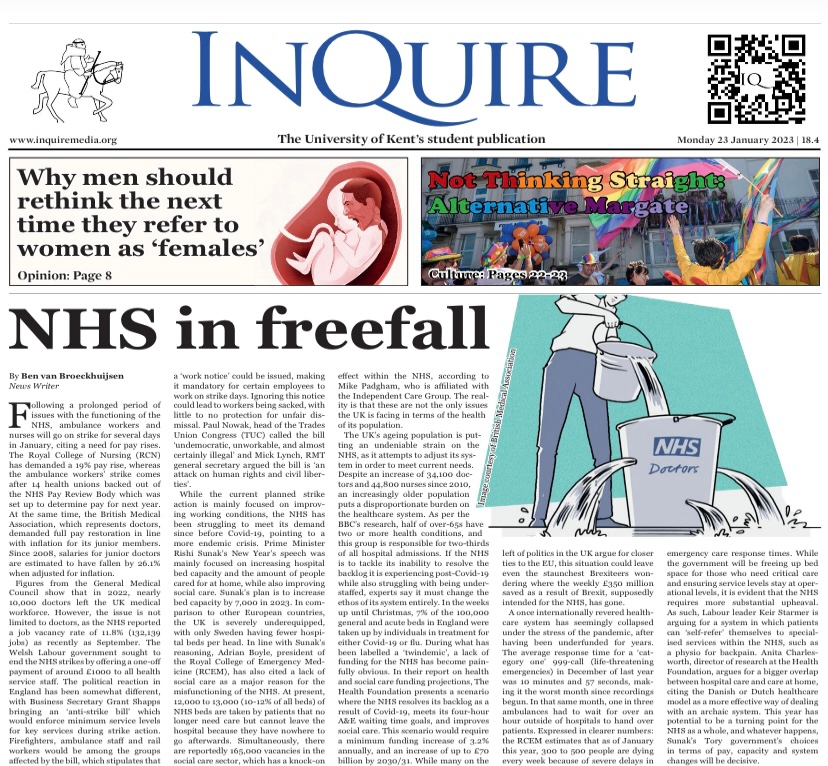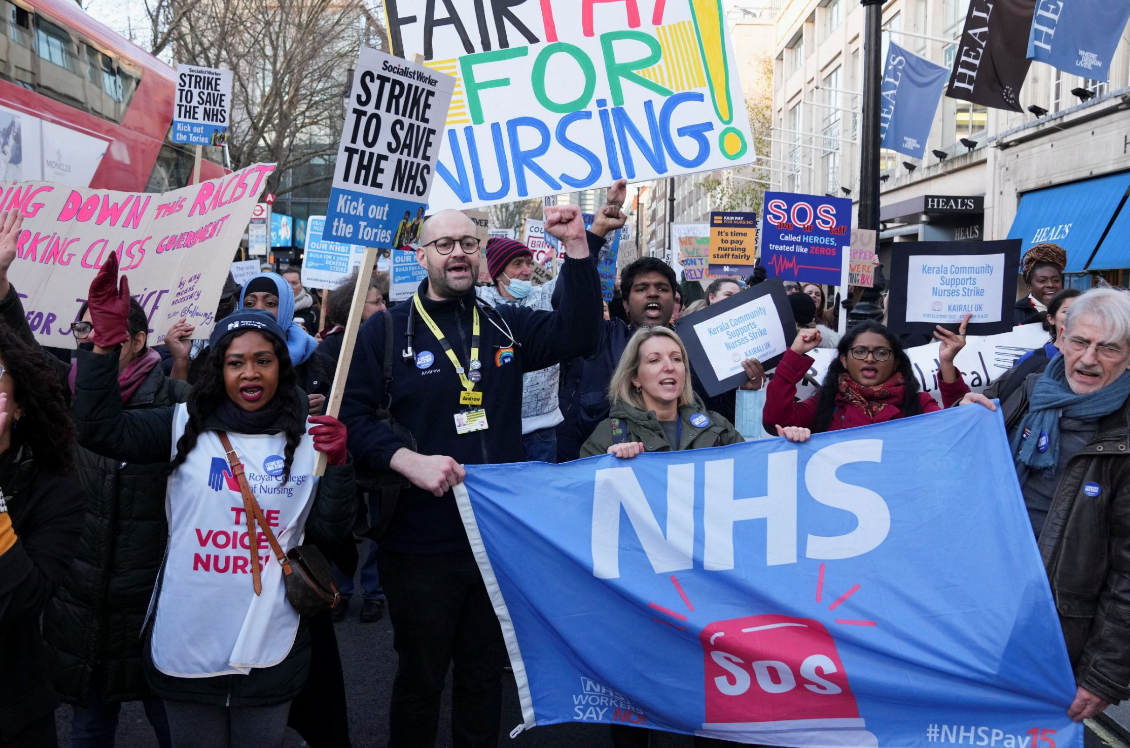Following a prolonged period of issues with the functioning of the NHS, ambulance workers and nurses will go on strike for a number of days in January, citing a need for pay rises as their motivation. The Royal College of Nursing (RCN) has demanded a 19% pay rise whereas the ambulance workers’ strike comes after 14 health unions backed out of the NHS Pay Review Body which was set up to determine pay for next year. At the same time, the British Medical Association, representing doctors, demands full pay restoration in line with inflation for its junior members. Since 2008, salaries for junior doctors are estimated to have fallen by 26.1% when adjusted for inflation.
Figures from the General Medical Council show that in 2022, nearly 10,000 doctors left the UK medical workforce. The issue is not limited to doctors however, as the NHS reported a total job vacancy rate of 11.8% (132,139 jobs) as recently as September. The Welsh Labour government sought to end the NHS strikes by offering a one-off payment of about £1000 to all health service staff. The political reaction in England has been somewhat different. Business Secretary Grant Shapps has brought an ‘anti-strike bill’ that would enforce minimum service levels for key services during periods of strike action. Firefighters, ambulance staff and rail workers would be among the groups affected by the bill, which stipulates that a ‘work notice’ could be issued, making it mandatory for certain employees to work on strike days. Ignoring this notice could lead to being sacked, with little to no protection for unfair dismissal. Paul Nowak, head of the Trades Union Congress (TUC) called the bill “undemocratic, unworkable, and almost certainly illegal” and Mick Lynch, general secretary of the RMT rail union argued the bill is “an attack on human rights and civil liberties”.
‘Nearly 10,000 doctors left the UK medical workforce in 2022.’
While the current planned strike action is mainly focused on improving working conditions, the NHS has been struggling to meet its demand since before Covid-19, pointing to a more endemic crisis. Prime Minister Rishi Sunak’s New Year’s speech was mainly focused on increasing hospital bed capacity and the amount of people cared for at home, while also improving social care. Sunak’s plan is to increase capacity by 7,000 beds in 2023; the Health Foundation estimates the NHS needs up to 39,000 new beds by 2030 to deliver the same level of care it did in 2019. In comparison to other European countries, the UK is severely underequipped, with only Sweden having fewer hospital beds per head, and Germany having three times as many. In line with Sunak’s reasoning, Adrian Boyle, president of the Royal College of Emergency Medicine (RCEM), has also cited a lack of social care as a major reason for the misfunctioning of the NHS. At present, 12,000 to 13,000 (10-12% of all beds) of NHS beds are taken by patients that no longer need care but cannot leave the hospital because they have nowhere to go afterwards. Simultaneously, there are reportedly 165,000 vacancies in the social care sector, which has a knock-on effect within the NHS, according to Mike Padgham, who is affiliated with the Independent Care Group. The sobering reality is that these are not the only issues the UK is facing in terms of the health of its population.
The UK’s ageing population is putting an undeniable strain on the NHS as it attempts to adapt its system in order to meet current needs. Despite an increase of 34,100 doctors and 44,800 nurses since 2010, an increasingly older population puts a disproportionate burden on the healthcare system. As per the BBC’s research, half of over-65s have two or more health conditions, and this group is responsible for two-thirds of all hospital admissions. If the NHS is to resolve the backlog it is experiencing post-Covid-19 while simultaneously struggling to fill its job vacancies, experts say it must change the ethos of its system entirely. In the weeks up until Christmas, 7% of the 100,000 general and acute beds in England were taken up by individuals in treatment for either COVID-19 or flu. During what has been labelled a ‘twindemic’, a lack of funding for the NHS has become painfully obvious. In their report on health and social care funding projections, The Health Foundation presents a scenario where the NHS resolves its backlog as a result of COVID-19, meets its 4-hour A&E waiting time goals, and improves social care. This scenario would require a minimum funding increase of 3.2% annually, and an increase of up to £70 billion by 2030/31. While many on the left of politics in the UK argue for closer ties to the EU, this situation could leave even the staunchest Brexiteers wondering where the weekly £350 million saved as a result of Brexit, supposedly intended for the NHS, has gone.
‘The government’s choices will be decisive.’
A once internationally revered healthcare system has seemingly collapsed under the stress of the pandemic, having been underfunded for years. The average response time for a ‘category one’ 999-call (life-threatening emergencies) in December of last year was 10 minutes and 57 seconds, making it the worst month since recordings begun. In that same month, one in three ambulances had to wait for over an hour outside of hospitals to hand over patients. Expressed in clearer numbers, the RCEM estimates that as of January this year, 300 to 500 people are dying every week because of severe delays in emergency care response times. While the government will be freeing up bed spaces for those who need critical care and ensuring service levels stay at operational levels, it is evident that the NHS requires more substantial upheaval. As such, Labour leader Keir Starmer is arguing for a system in which patients can ‘self-refer’ themselves to specialised services within the NHS such as a physiotherapist for backpain. Anita Charlesworth, director of research at the Health Foundation, argues for a bigger overlap between hospital care and care at home, referring to the Danish or Dutch healthcare models as more effective alternatives. This year has potential to be a turning point for the NHS as a whole, and this Tory government’s choices in terms of capacity, pay and system changes will be decisive.
This article was first published in InQuire student newspaper on the 23rd of January 2023.
Ben van Broeckhuijsen is studying for a degree in Politics and International Relations(BA Hons).


